Coenzyme Q10 promotes metastasis in triple-negative breast cancer
- Normal Liver Cells Found to Promote Cancer Metastasis to the Liver
- Nearly 80% Complete Remission: Breakthrough in ADC Anti-Tumor Treatment
- Vaccination Against Common Diseases May Prevent Dementia!
- New Alzheimer’s Disease (AD) Diagnosis and Staging Criteria
- Breakthrough in Alzheimer’s Disease: New Nasal Spray Halts Cognitive Decline by Targeting Toxic Protein
- Can the Tap Water at the Paris Olympics be Drunk Directly?
Coenzyme Q10 promotes metastasis in triple-negative breast cancer
- Should China be held legally responsible for the US’s $18 trillion COVID losses?
- CT Radiation Exposure Linked to Blood Cancer in Children and Adolescents
- FDA has mandated a top-level black box warning for all marketed CAR-T therapies
- Can people with high blood pressure eat peanuts?
- What is the difference between dopamine and dobutamine?
- How long can the patient live after heart stent surgery?
Coenzyme Q10 promotes metastasis in triple-negative breast cancer.
Coenzyme Q10 is an important antioxidant, widely present in biological cells and various foods, which can activate cellular aerobic respiration and energy metabolism. Also known as anti-aging, improve immunity.
However, the Southwest Oncology Group Breast Cancer Chemotherapy Study (SWOG S0221) Association Study (DELCaP) analysis report published in the American Society of Clinical Oncology’s “Journal of Clinical Oncology” in 2019 found that breast cancer patients who took and did not take coenzyme Q10 before and during treatment Compared with cancer patients, the risk of recurrence and metastasis was 75% higher (adjusted hazard ratio: 1.75, 95% confidence interval: 0.77-4.01), and the overall risk of death was 104% higher (adjusted hazard ratio: 2.04, 95% confidence interval: 0.82-4.01) 5.09).
The American Cancer Society believes that coenzyme Q10 may reduce the effect of chemotherapy and radiation, and most oncologists recommend avoiding it during cancer treatment. However, the mechanism of action of coenzyme Q10 on triple-negative breast cancer is still unclear.

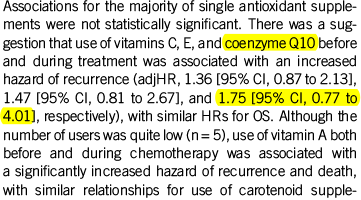
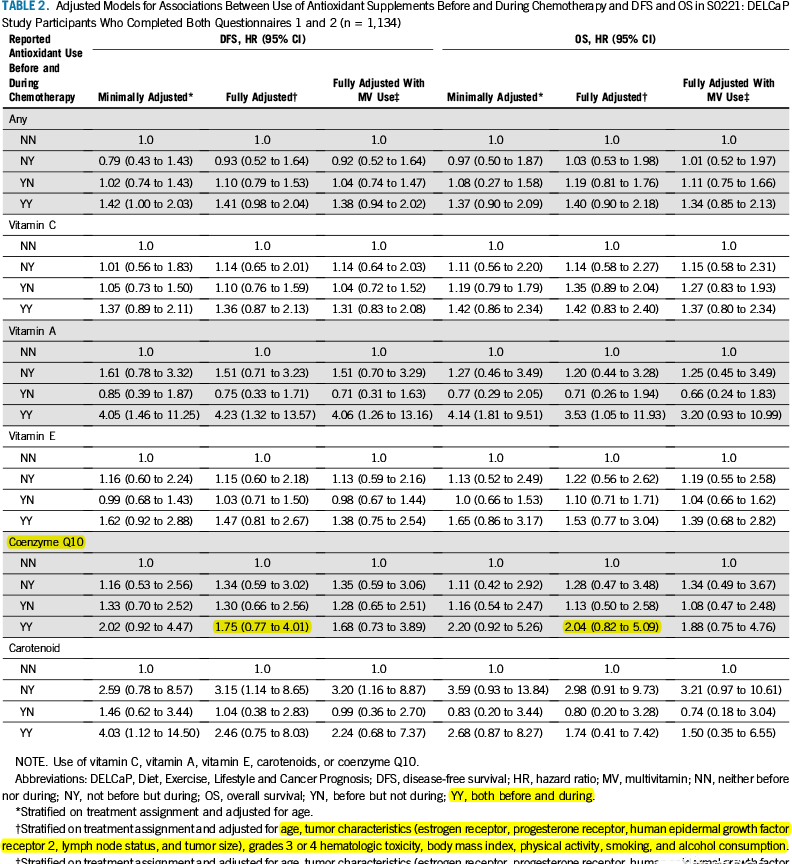
On August 18, 2021, Researchers from Fudan UniversityAffiliated Cancer Hospital have found the key mechanism by which coenzyme Q10 promotes the metastasis of triple-negative breast cancer .
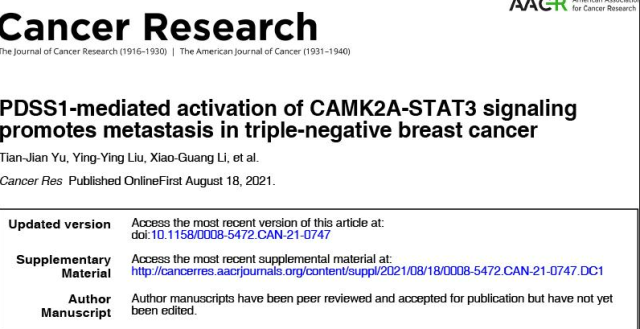
PDSS1-mediated activation of CAMK2A-STAT3 signaling promotes metastasis in triple-negative breast cancer.
Using the multi-omics feature database of triple-negative breast cancer patient cohort previously established by Fudan University Affiliated Cancer Hospital, this study determined that PDSS1, the gene encoding decenediphosphate synthase subunit 1 , is an essential gene for triple-negative breast cancer metastasis.
The expression level of PDSS1 was significantly higher in triple-negative breast cancer tissues compared with adjacent normal tissues . Patients with higher PDSS1 expression levels were associated with significantly lower recurrence-free survival compared with lower triple-negative breast cancer patients .
Using gene technology to reduce PDSS1 gene expression can inhibit the migration, invasion and distant metastasis of triple-negative breast cancer cells .
According to mechanistic analysis, PDSS1 can increase intracellular coenzyme Q10 and calcium levels, thereby inducing phosphorylation of calcium/calmodulin-dependent protein kinase CAMK2A , which is essential for cytoplasmic signal transduction and phosphorylation of transcriptional activator protein STAT3 .
Phosphorylated STAT3 enters the nucleus and promotes oncogenic STAT3 signaling and triple-negative breast cancer metastasis, while STAT3 phosphorylation inhibitors , such as Stattic , can effectively block PDSS1-induced cell migration and infiltration in vitro and tumor metastasis in vivo .
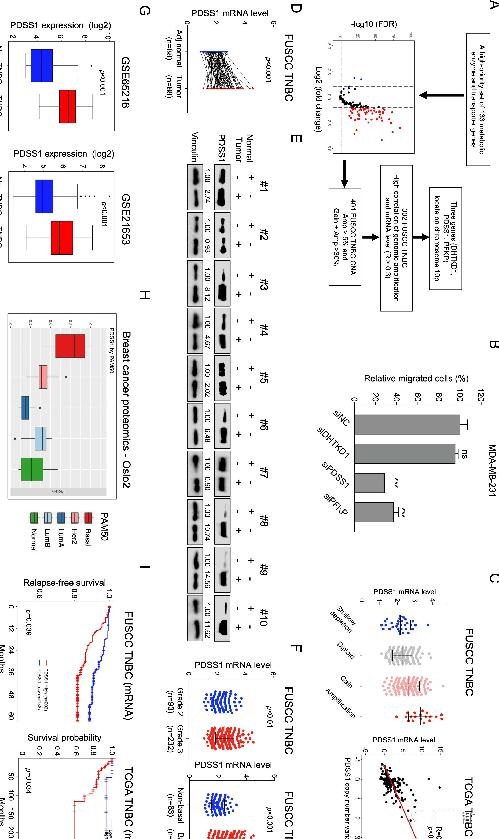
Therefore, the results of this study suggest that PDSS1→CoQ10 → CAMK2A →STAT3 oncogenic signaling axis activation can promote the metastasis of triple-negative breast cancer, laying a foundation for expanding the precision treatment of triple-negative breast cancer .
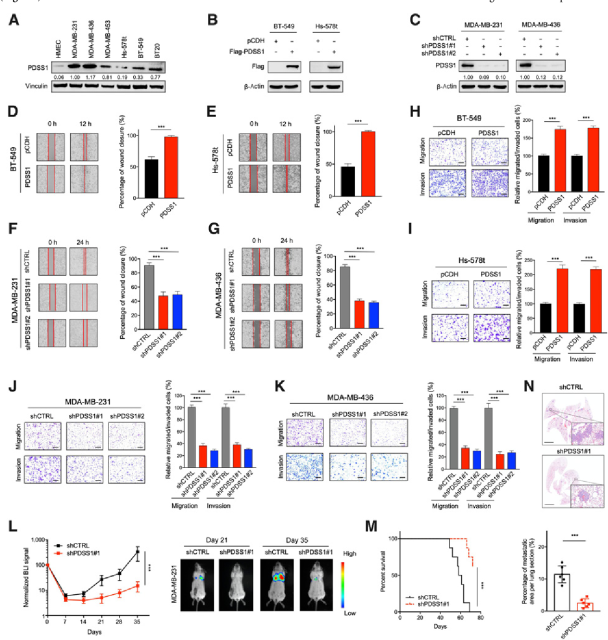
Reference:
https://doi.org/10.1158/0008-5472.can-21-0747
Coenzyme Q10 promotes metastasis in triple-negative breast cancer
(source:internet, reference only)
Disclaimer of medicaltrend.org
Important Note: The information provided is for informational purposes only and should not be considered as medical advice.



